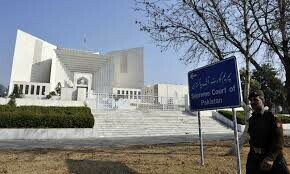
GHULAM Kibria, who passed away in Karachi last Saturday, was a technologist in a class by himself. He spent his whole life trying to convince rulers, opinion-makers and the people at large that mistris and workers were capable of making Pakistan a technologically advanced country.
A person known since his early youth for a fiercely independent and critical mind, Ghulam Kibria disagreed with his father, Advocate Ghulam Mustafa Khan, a staunch leader of the Muslim League in Bulandshehr (UP, India), on the political future of Indian Muslims. The reason was not merely his association with the senior Khaksars at the Aligarh Muslim University (AMU), Akhtar Hameed Khan and Karrar Husain, but his own understanding of the causes of the Muslim elite’s intellectual stagnation and political waywardness. Much later he presented his ideas in a book that deserved a wider audience than it actually received.
One of the earliest graduates of the AMU college of engineering, Ghulam Kibria got a teaching job at the same college. While he had his differences with the dominant political leaders he had none with the people. Thus, when word reached the AMU that Pakistan urgently needed skilled professionals he packed his bag and arrived in Lahore, where he stayed for two decades except for a break when he went to England and Germany to gain experience as a shop-floor worker and acquire an abiding respect for the value and dignity of labour.
During his stay in Lahore, Ghulam Kibria’s principal achievement was his leading role in establishing the Milli Techniki Idara in a portion of the Bradlaugh Hall, a polytechnic where young boys received training in a variety of disciplines free of cost and the instructors, including Ghulam Kibria himself, offered their services without any charge. This polytechnic ran for many years and enabled thousands of young men, many of them resourceless refugees, to find their feet in life and also contribute significantly to the national economy.
He also mobilised his Samanabad neighbours to solve their civic problems through community action and enjoyed persuading a few of his friends to replace their cloak of bigotry with the shining armour of reason and rationalism.
The first PPP government showed interest in Ghulam Kibria’s thesis on the utilisation of indigenous technology and the skills of mistris for industrial development. It set up an Appropriate Technology Development Organisation and invited Ghulam Kibria to be its chairman with the rank of a federal secretary. Among the many projects he started, a special place was occupied by plans to use waterfalls at canals to generate electricity on a small scale, each unit enough to enable residents of a small village to have one bulb per household.
He received valuable support not only from his friends among mistris but also from senior engineers including the one who was the first Muslim to receive a high degree in engineering from a German university in 1930. The venerable old engineer was happy to carry a generator to a remote area in the Northern Areas.
When martial law was imposed in 1977 he surprised the bureaucratic community by resigning from his lucrative and influential post. But he found a lot of work as a UN consultant to study mechanised farming in several Asian countries and later on as a World Bank consultant.
Shifting to Karachi in the 1980s, he attached himself to Orangi Pilot Project (OPP) and Pakistan Institute of Labour Education and Research (Piler) for what he told me was his second education.
Ghulam Kibria’s main thesis was that at its birth Pakistan had the wherewithal to rapidly develop an industrial base and was ahead of many countries, including China and Korea, but it fell behind both because its privileged classes squandered the country’s valuable technological inheritance through their undemocratic and ruinous policies and faulty planning.
These views were rooted in Kibria Bhai’s broader formulation about industrial development in the world. “Before the evolution and development of modern technology during the middle of eighteenth century England,” he argued, “the Asian and European countries as also the countries of North African were at the same level of technological development.” He then explained in perhaps his most important work — Technology Acquisition in Pakistan; Story of a Failed Privileged Class and a Successful Working Class — how England forged ahead and how Asian-African countries lagged behind!
Kibria Bhai had opportunities of vindicating his faith in his mistris when he found one in Daska who offered to produce a lathe for a tractor manufacturing company for one-tenth of the cost quoted by a foreign bidder. The National Development Finance Corporation (NDFC) that had been approached for a loan sought Kibria Bhai’s advice before sanctioning the loan. The lathe produced by the mistri received the seal of approval from the British owner of the trade mark. A Raleigh bicycle plant was later on built by another mistri.
In Ghulam Kibria’s personal creed technology and industrial progress were essential tools for the people’s uplift, especially of the disadvantaged. He recognised merit in fellow beings by what they were doing to banish disease, hunger and want, and not by what they believed in. Above all, he was proud of having used his hands to contribute his bit to his people’s progress and happiness. Down with multiple diseases and unable to move around during the last years of his life his main regret was “I cannot do anything for anyone now”.
Adieu Kibria Bhai! Not many persons in Pakistan have earned like you a rest in peace after a life well spent in the service of humankind.
Published in Dawn, March 1st, 2018














































